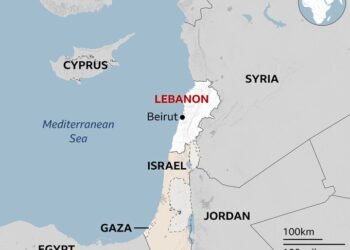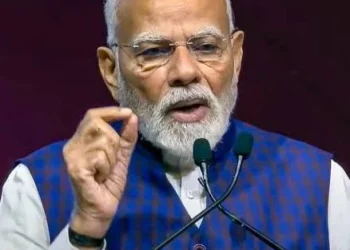The Kuki-Zo leadership has set firm preconditions for a ceasefire ahead of peace talks with the Indian government, including a ban on cross-movement between communities and a six-month truce for structured dialogue. Meanwhile, Meitei groups demand action against militants and illegal infiltration. With both sides holding strong, can a path to reconciliation be found?
BY PC Bureau
NEW DELHI – April 4, 2025
In a move aimed at de-escalating the protracted ethnic tensions in Manipur, leading organizations representing the Meitei and Kuki-Zo-Hmar communities are set to convene a crucial tripartite meeting with officials from the Ministry of Home Affairs (MHA) in New Delhi on April 5.
This high-stakes meeting marks the first instance of direct tripartite dialogue since the eruption of violent ethnic clashes 23 months ago between the non-tribal Meitei and the tribal Kuki-Zo-Hmar communities. The conflict was ignited by the Meitei community’s demand for Scheduled Tribe status, leading to widespread bloodshed and displacement.
While officials within the Manipur state government have confirmed the scheduled meeting in the national capital, they have remained tight-lipped regarding the specific agenda of the discussions. The meeting follows closely on the heels of an announcement made on April 2 by the Kuki-Zo leadership in the Sadar Hills of Kangpokpi District. In a high-level consultation meeting organized by the Committee on Tribal Unity (CoTU) at the KBC Centre Church Hall, Kangpokpi, major Kuki-Zo organizations unanimously laid down three non-negotiable preconditions for any cessation of hostilities.
The consultation witnessed broad participation from key Kuki-Zo entities, including the Kuki-Zo Council, the Sadar Hills Chiefs’ Association, Kuki Inpi, various student bodies, women’s organizations, and tribal representatives. Intellectuals, social activists, and prominent community figures also actively contributed to the discussions, shaping the community’s unified stance.
ALSO READ: Pressure on China Grows Over Tibet’s Human Rights Violations
The three firm preconditions articulated by the Kuki-Zo leadership for a ceasefire are:
- No Cross-Movement: A strict and mutual prohibition on the movement of Meitei individuals into Kuki-Zo-dominated areas and vice versa.
- Structured Dialogue: The commencement of a meaningful and formalized dialogue process during the agreed ceasefire period.
- Six-Month Ceasefire: A commitment to halt all hostilities for a minimum duration of six months to create a conducive environment for substantive negotiations.
This declaration came against a backdrop of heightened tensions and previous resistance from the Kuki-Zo community, particularly in response to Union Home Minister Amit Shah’s earlier calls for unrestricted movement between the conflicting groups. The presence and endorsement of these preconditions by the Kuki-Zo Council (KZC), the apex representative body for the 13 Kuki-Zo tribal organizations in Manipur, underscores the collective and firm stance of the community’s civil society on this critical issue.
A.K. Mishra, the MHA advisor for the northeast region, is reported to have extended the invitation for this crucial tripartite meeting. Mishra had previously engaged in separate discussions with various organizations representing both the Meitei and Kuki-Zo communities in Manipur last month, attempting to bridge the communication gap and lay the groundwork for direct talks.
ALSO READ: Mystery Around Tibetan Lama’s Death as China Withholds Body
Notably, the MHA had attempted to convene a similar tripartite meeting last year; however, tribal organizations representing the Kuki-Zo community declined to meet with Meitei leaders at that time, highlighting the deep-seated mistrust and complexities of the conflict.
The Kuki-Zo Council (KZC) had previously engaged in discussions with senior MHA officials in New Delhi on January 17, where they deliberated on their core demands and the prevailing volatile situation in Manipur. The four-member KZC delegation, led by Chairman Henlianthang Thanglet, met with A.K. Mishra and Joint Director of the MHA, Rajesh Kamble, although the specifics of those discussions were not publicly disclosed.
The KZC has been consistently advocating for a separate administration, equivalent to a Union Territory, for the Kuki-Zo-Hmar tribal-dominated areas, citing a complete breakdown of trust and security concerns.
Conversely, Meitei organizations have been primarily demanding stringent actions against militants, a crackdown on the burgeoning drug menace, measures to address alleged illegal infiltration from Myanmar, and the implementation of the National Register of Citizens (NRC) in the state.
The devastating ethnic violence, which erupted on May 3, 2023, has tragically claimed the lives of over 250 people and left more than 1,500 individuals injured. The prolonged conflict has also resulted in the displacement of over 60,000 people from their homes and villages, who continue to reside in various relief camps across different districts for the past 23 months, facing immense hardship and uncertainty.
The outcome of Saturday’s tripartite meeting in New Delhi will be closely watched by all stakeholders, holding the potential to either pave the way for meaningful dialogue or further underscore the complexities of resolving this deeply entrenched ethnic conflict.














